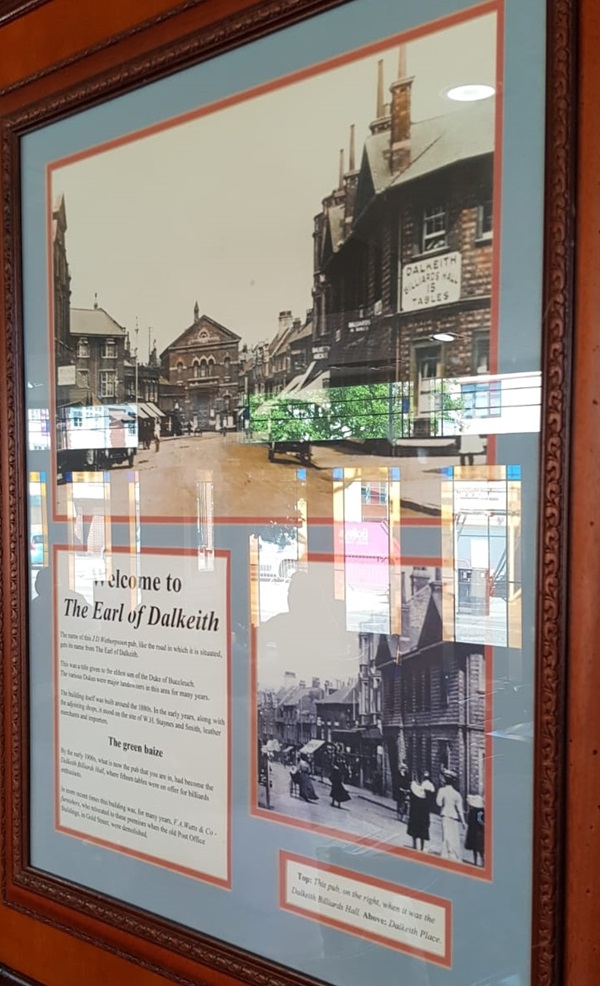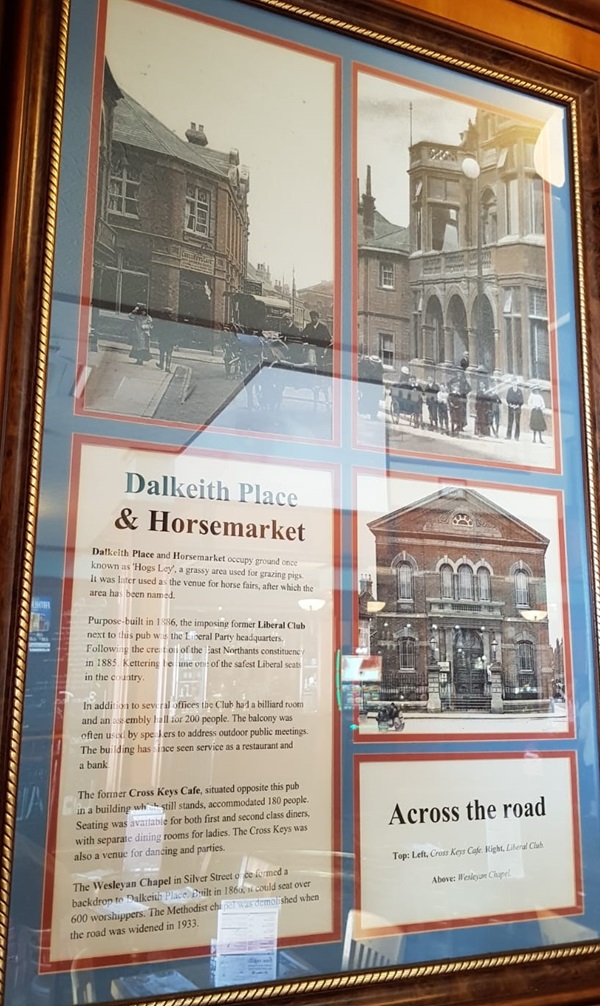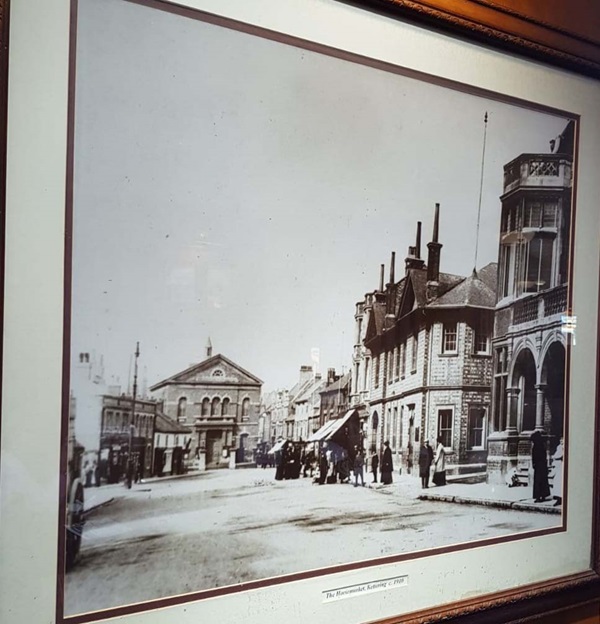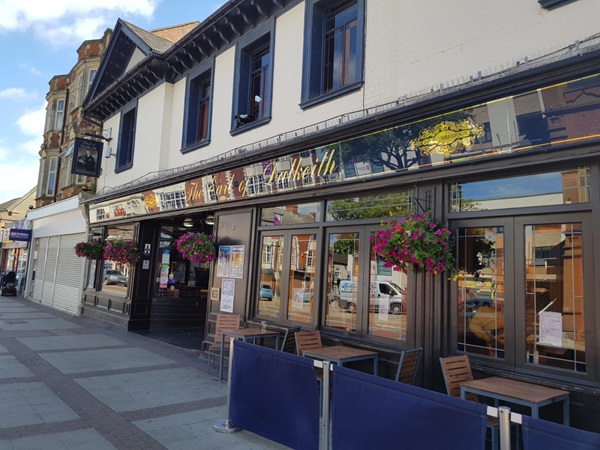This pub is in Dalkeith Place, whose name comes from the Earl of Dalkeith. For centuries, the land was owned by the dukes of Buccleuch [bəˈkluː] – the eldest son was given the title the Earl of Dalkeith.
Photographs and text about The Earl of Dalkeith.

The text reads: The name of this J D Wetherspoon pub, like the road in which it is situated, gets its named from the Earl of Dalkeith.
The building itself was built around the 1880s. In the early years, along with the adjoining shops, it stood on the site of WH Stayers and Smith, leather merchants.
By the early 1900s, what is now the pub that you are in, had become the Dalkeith Billiards Hall, where fifteen tables were on offer for billiards games.
Photographs and text about Dalkeith Place and Horsemarket.

The text reads: Dalkeith Place and Horsemarket occupy ground once known as ‘Hogs Ley’, a grassy area used for grazing pigs. It was later used as the venue for horse fairs, after which the area has been named.
Purpose-built in 1886, the imposing former Liberal Club next to this pub was the Liberal Party headquarters. Following the creation of the East Northants constituency in 1885, Kettering became one of the safest Liberal seats in the country.
In addition to several officers the club had a billiard room and an assembly hall for 200 people. The balcony was often used by speakers to address outdoor public meetings. The building has since seen service as a restaurant and a bank.
The former Cross Keys Café, situated opposite this pub in a building which still stands, accommodated 180 people. Seating was available for both first and second class diners, with separate dining rooms for ladies. The Cross Keys was also a venue for dancing and parties.
The Wesleyan Chapel in Silver Street once formed a backdrop to Dalkeith Place. Built in 1866, it could seat over 600 worshippers. The Methodist chapel was demolished when the road was widened in 1933.
Top: left, Cross Keys Café, right, Liberal Club
Above: Wesleyan Chapel.
A photograph of the horsemarket, Kettering, c1910.

External photograph of the building – main entrance.

If you have information on the history of this pub, then we’d like you to share it with us. Please e-mail all information to: pubhistories@jdwetherspoon.co.uk